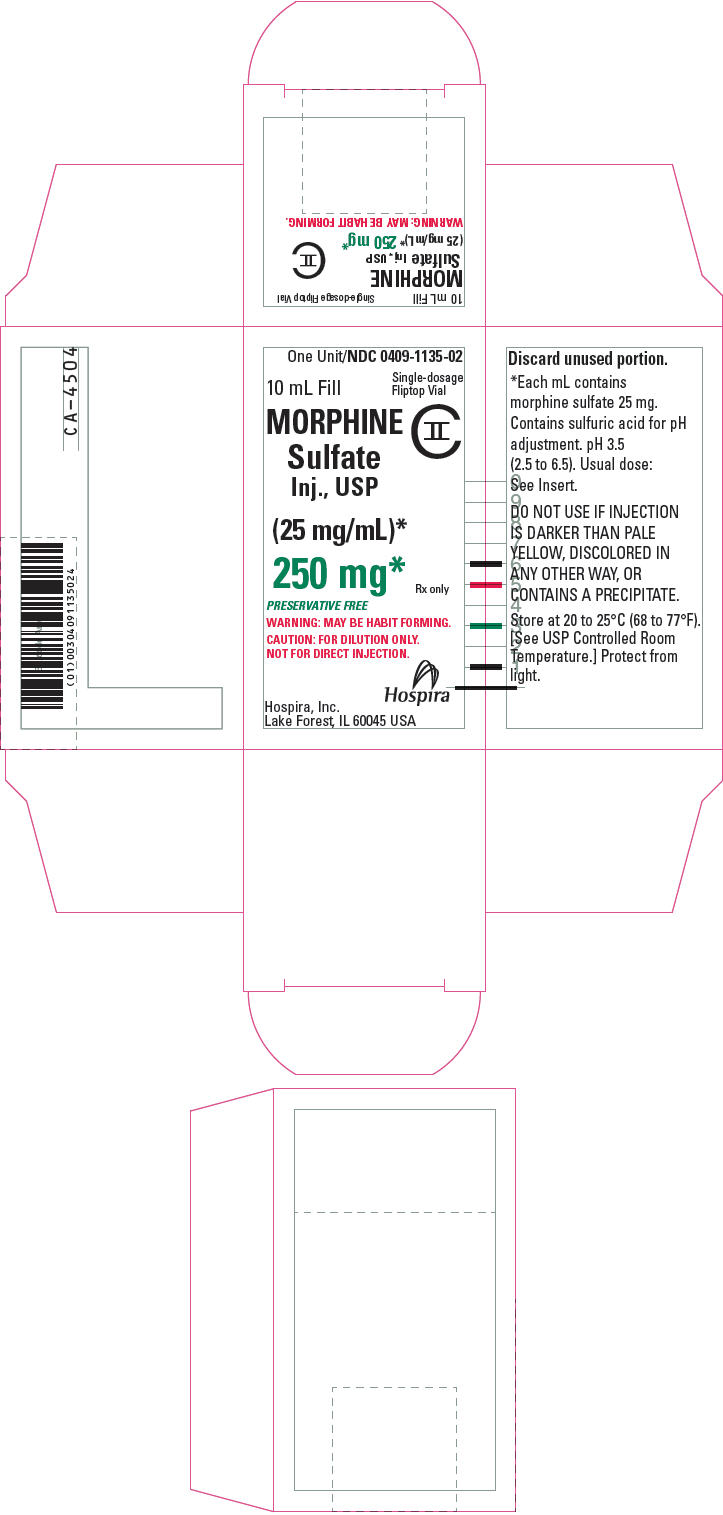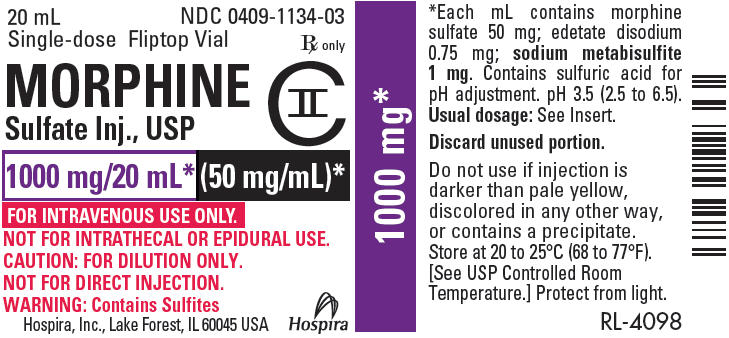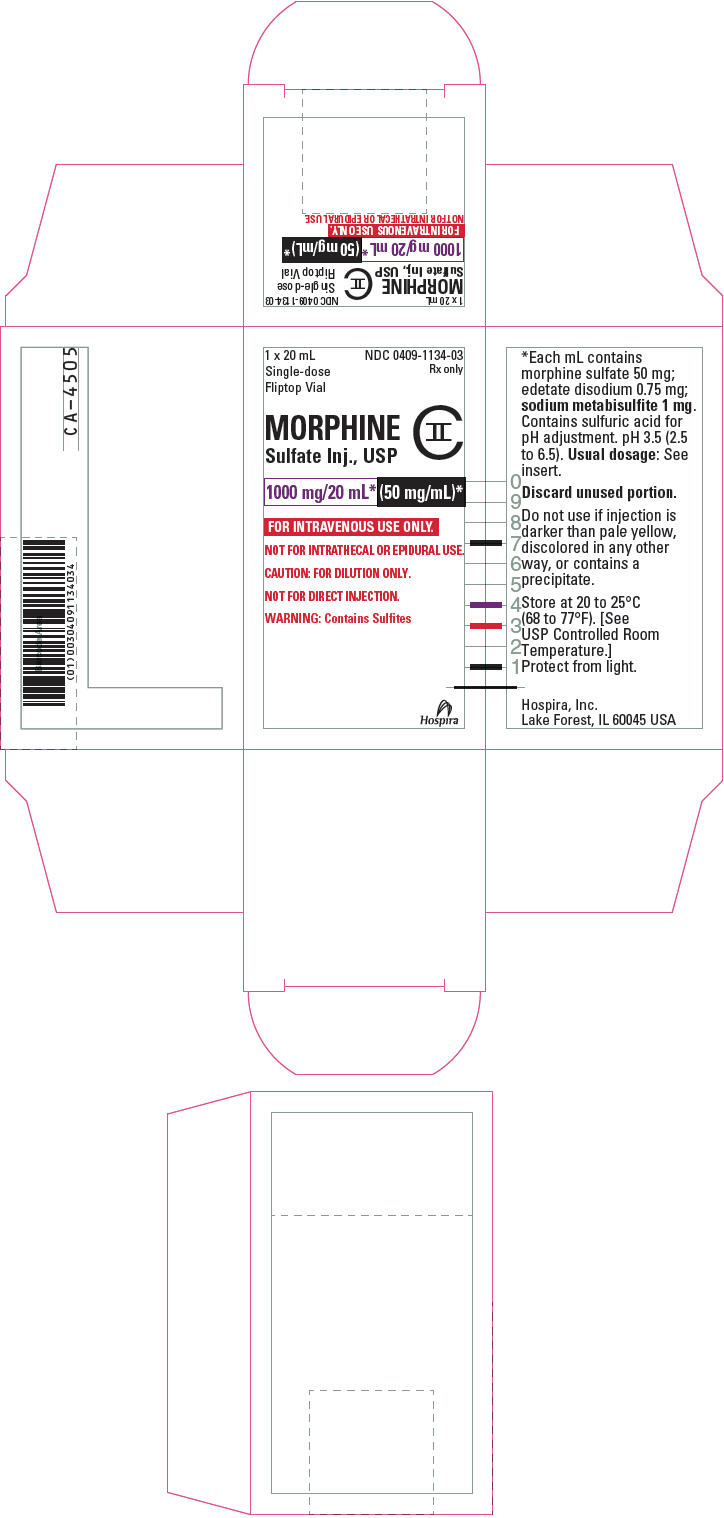Morphine Sulfate Injection, Solution, Concentrate while Breastfeeding

What is Morphine Sulfate Injection, Solution, Concentrate used for?
Is using Morphine Sulfate Injection, Solution, Concentrate unsafe in breastfeeding? Can there be bad consequences for baby if I use it while breastfeeding?

Morphine Sulfate Injection, Solution, Concentrate Breastfeeding Analsys
Morphine sulfate while Breastfeeding
Low RiskCAS Number: 57-27-2
Excretion into breast milk is low (even lower when administered through Epidural Anesthesia). In addition, a low oral bioavailability makes that the amount present in the infant's plasma due to absorption from milk by the gut is low. Even though, level of drug has been found in the plasma of infants from treated mothers, harmful effects in the infants were not reported. Levels in the milk are lower and side-effects are fewer among infants whose mothers were treated with Morphine than with Pethidine. Some authorities consider Morphine as the elective opioid medication for breastfeeding mothers. Analgesia used during the birth process is related to a brief delayed of stage II of Lactogenesis (milk come-in). Morphine increases Prolactin level and may decrease Oxytocin level, but it would not be determinant for already established lactations. Avoidance of repetitive or chronic use and follow-up for somnolence and adequacy of infant nourishment is recommended. Bed-sharing should be avoid whenever this medication is used by parents. The American Academy of Pediatrics rates it as compatible with breastfeeding.
Morphine Sulfate Injection, Solution, Concentrate Breastfeeding Analsys - 2
Morphine sulfate while Breastfeeding
CAS Number: 57-27-2

Epidural morphine given to mothers for postcesarean section analgesia results in trivial amounts of morphine in their colostrum and milk. Intravenous or oral doses of maternal morphine in the immediate postpartum period result in higher milk levels than with epidural morphine. Labor pain medication may delay the onset of lactation. Maternal use of oral narcotics during breastfeeding can cause infant drowsiness, central nervous system depression and even death, although low-dose morphine might be preferred over other opiates.[1] Newborn infants seem to be particularly sensitive to the effects of even small dosages of narcotic analgesics. Once the mother's milk comes in, it is best to provide pain control with a nonnarcotic analgesic and limit maternal intake of morphine to a 2 to 3 days at a low dosage with close infant monitoring, especially in the outpatient setting.[2] If the baby shows signs of increased sleepiness (more than usual), difficulty breastfeeding, breathing difficulties, or limpness, a physician should be contacted immediately.

What should I do if I am breastfeeding mother and I am already exposed to Morphine Sulfate Injection, Solution, Concentrate?
Morphine Sulfate Injection, Solution, Concentrate is in the category of low risk, if you have already used it then its not a big deal if health and behavior of baby is good. However your health care provider shall be aware of the fact that you have used Morphine Sulfate Injection, Solution, Concentrate so you should inform him based on your convenience.
My health care provider has asked me to use Morphine Sulfate Injection, Solution, Concentrate, what to do?
Morphine Sulfate Injection, Solution, Concentrate comes in category of low risk and if your doctor is aware that you are breastfeeding it should be ok to use
If I am using Morphine Sulfate Injection, Solution, Concentrate, will my baby need extra monitoring?
Not much monitoring required while using Morphine Sulfate Injection, Solution, Concentrate
Who can I talk to if I have questions about usage of Morphine Sulfate Injection, Solution, Concentrate in breastfeeding?
US
National Womens Health and Breastfeeding Helpline: 800-994-9662 (TDD 888-220-5446) 9 a.m. and 6 p.m. ET, Monday through Friday
UK
National Breastfeeding Helpline: 0300-100-0212 9.30am to 9.30pm, daily
Association of Breastfeeding Mothers: 0300-330-5453
La Leche League: 0345-120-2918
The Breastfeeding Network supporter line in Bengali and Sylheti: 0300-456-2421
National Childbirth Trust (NCT): 0300-330-0700
Australia
National Breastfeeding Helpline: 1800-686-268 24 hours a day, 7 days a week
Canada
Telehealth Ontario for breastfeeding: 1-866-797-0000 24 hours a day, 7 days a week
